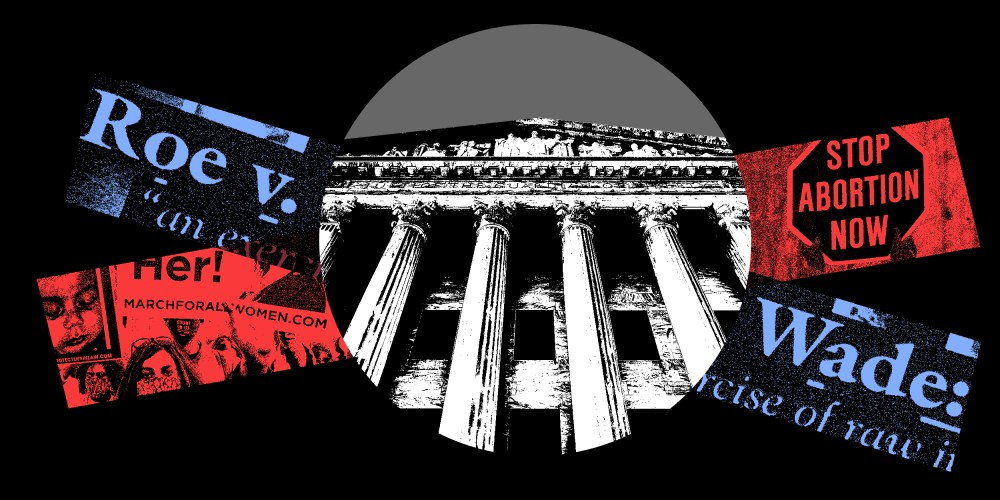Conservatives have been playing the long game on Roe v. Wade, even as their attempts to overturn the 1973 precedent have failed time and again. Their patience is due to pay off this fall, when the court that former President Donald Trump built, with its 6-3 conservative majority, will determine how early in a pregnancy states can block women from getting abortions.
The decade leading up to this moment has been foreshadowing, as Republican-led states have thrown law after extreme law at the federal courts. But the case in question — Dobbs v. Jackson Women’s Health Organization — is the big one. It’s the chance they’ve been waiting for and working toward as reverently and zealously as John the Baptist prepared the way for the Messiah.

Specifically, the court will answer “whether all pre-viability prohibitions on elective abortions are unconstitutional,” according to the petition it accepted Monday. Until now, the answer has been “yes.” The court has been pretty consistent in its rulings since Roe: States can’t block women from getting abortions if they are before the point at which a fetus is able to survive outside the womb. But that principle has been hammered away at for years as Republicans have moved back the de facto window in which women can legally terminate pregnancies.
When the court convenes this fall, it will consider the constitutionality of Mississippi’s Gestational Age Act. The law, which was passed in 2018, sets the deadline for a woman to end a pregnancy at 15 weeks after conception, except in cases of medical emergency or severe fetal abnormality. That’s about two months earlier than the 22 to 24 weeks that medical science considers the point when fetuses are generally held to be viable outside the womb.
In his petition to the court, Mississippi’s state health director, Dr. Thomas Dobbs, argues that the viability standard is arbitrary based on advances in science — not, you know, actual advances that have taken place recently. No, he veers into speculative fiction to predict a time down the line when “development of an artificial womb” could make it so any fetus is viable. In response, the Jackson Women’s Health Organization and the law firms backing it argue that the court “has described a ‘woman’s right to terminate her pregnancy before viability’ as ‘the most central principle of Roe v. Wade’” for decades.
But even without the Gestational Age Act, “Mississippi law already bans abortions after 20 weeks, which is still pre-viability, and the only abortion clinic in the state does not perform abortions after 16 weeks,” the Mississippi Free Press reported Monday. So why all the to-do about this specific law?
On its face, the 15-week ban seems less extreme than some of the proposals that have been circulated in state legislatures since 2010. Some of those, like another passed in Mississippi in 2019, would limit abortions to only the first six weeks of a pregnancy. (That’s at most a few weeks after a woman might even notice that she has missed her period.) The most restrictive versions that have been signed into law have yet to be enforced — like the Gestational Age Act, they remain tied up in the courts or blocked outright. But, as BuzzFeed News’ Ema O’Connor has long reported, the point hasn’t been to enact these exact laws. In fact, as she wrote in 2019, many of these “heartbeat bills” — named for the point at which a doctor might be able to detect a fetal heartbeat — had no chance of being enforced:
Heartbeat legislation began as a model bill that was circulated by fringe anti-abortion groups. In 2013 it was taken up, passed, and signed in North Dakota, but was quickly declared unconstitutional and struck down in the courts. Since then, similar bills have been drafted and introduced both federally and in dozens of state legislatures. None have ever been successfully implemented (this year alone courts struck down 6-week bans in both Iowa and Kentucky) and at this point the legislators passing them and the advocates encouraging them don’t expect them to.
Instead, the goal has been to frame one of these laws in such a way that it wouldn’t just get challenged but that it would make its way up through the appeals process to be heard by the Supreme Court. Mississippi’s law has already been overturned by the U.S. District Court for Southern Mississippi; that ruling was upheld in the 5th U.S. Circuit Court of Appeals. But on Monday, at least four of the six conservative members of the highest court in the land took the bait Dobbs offered up to hear an appeal.













